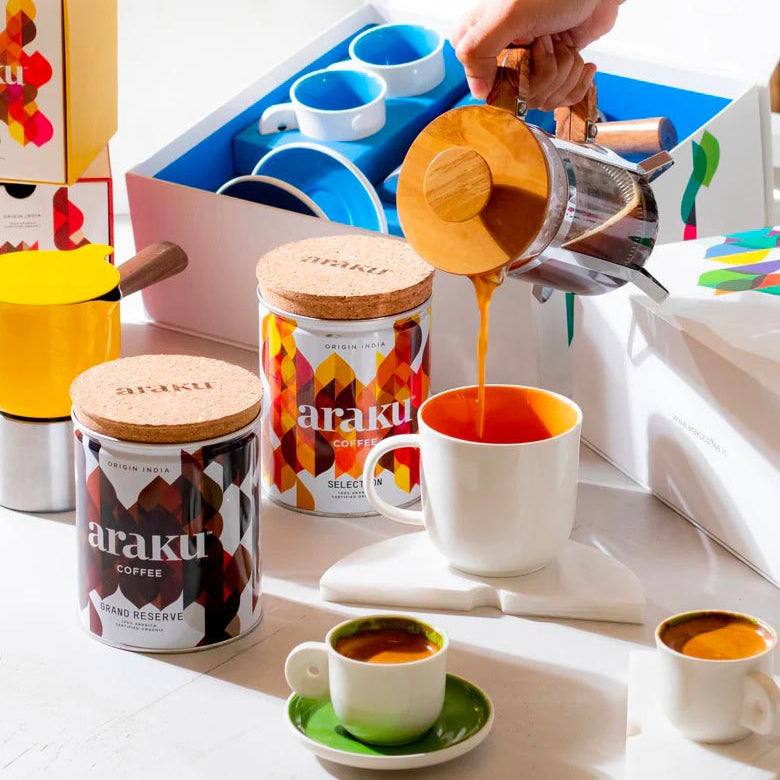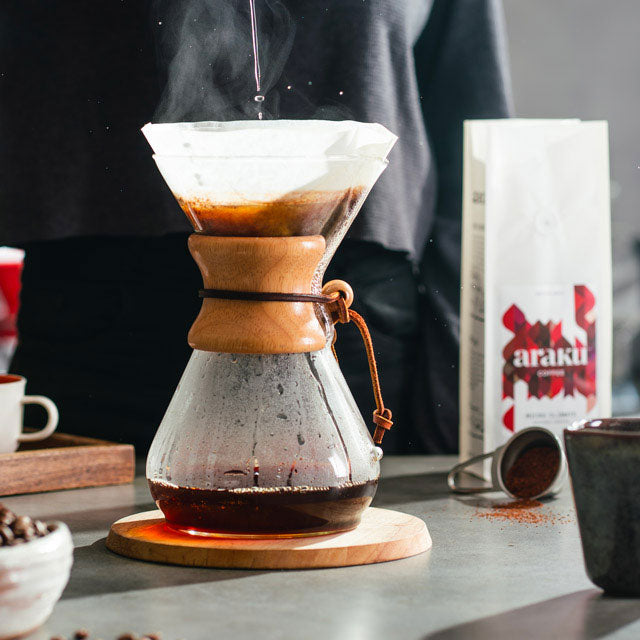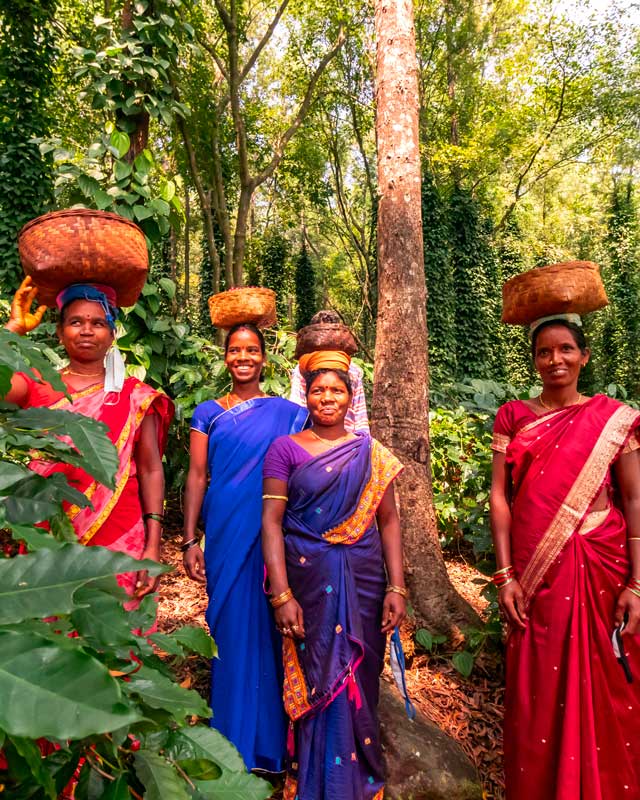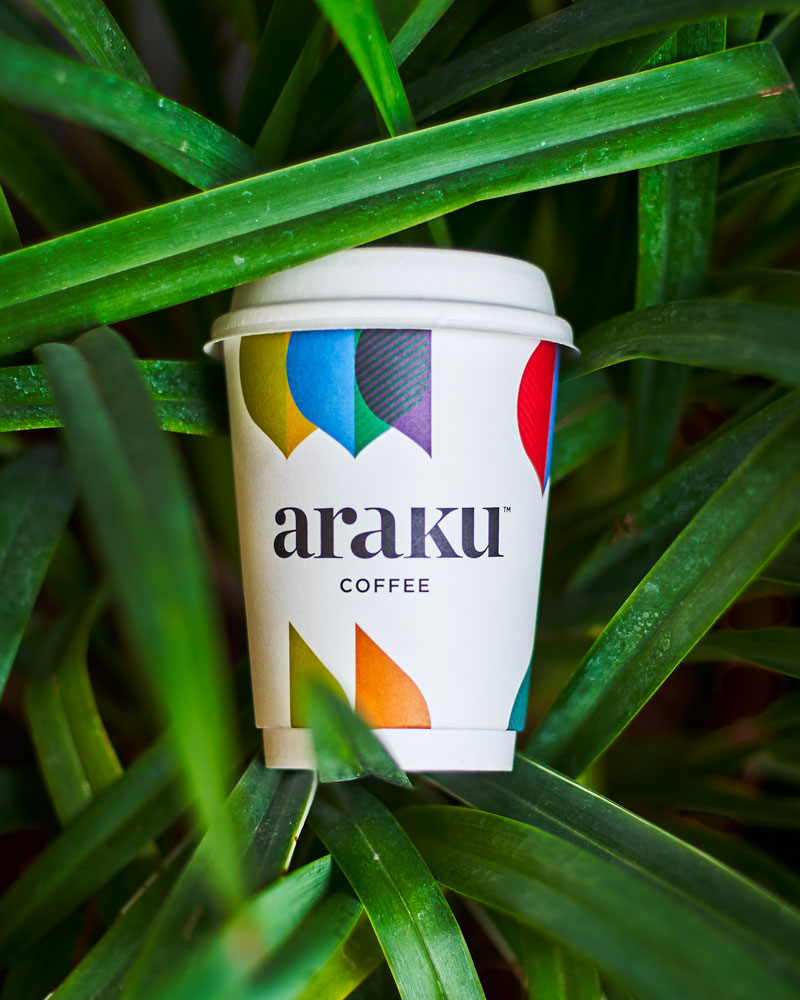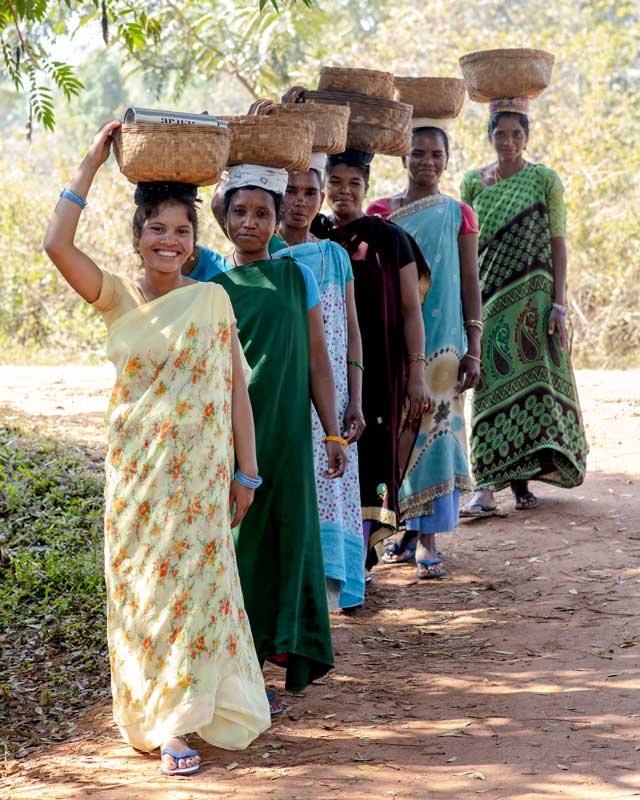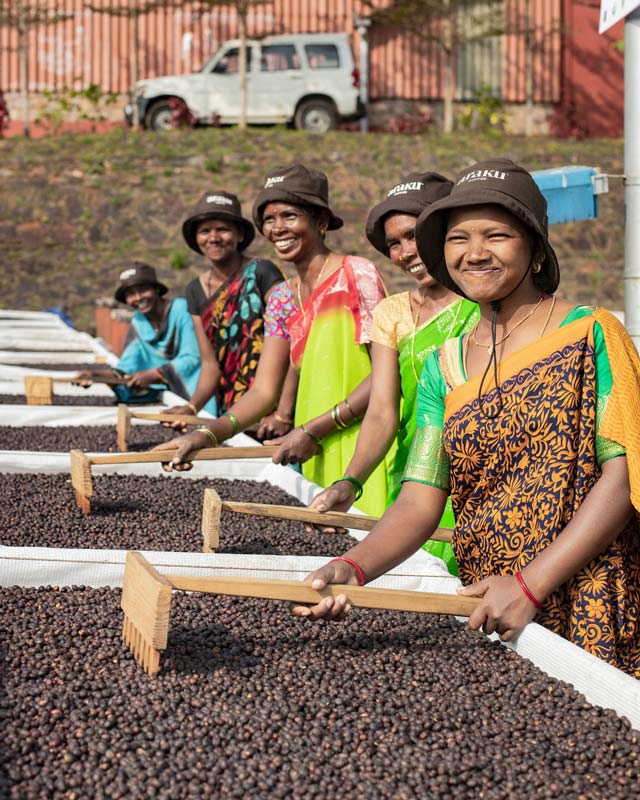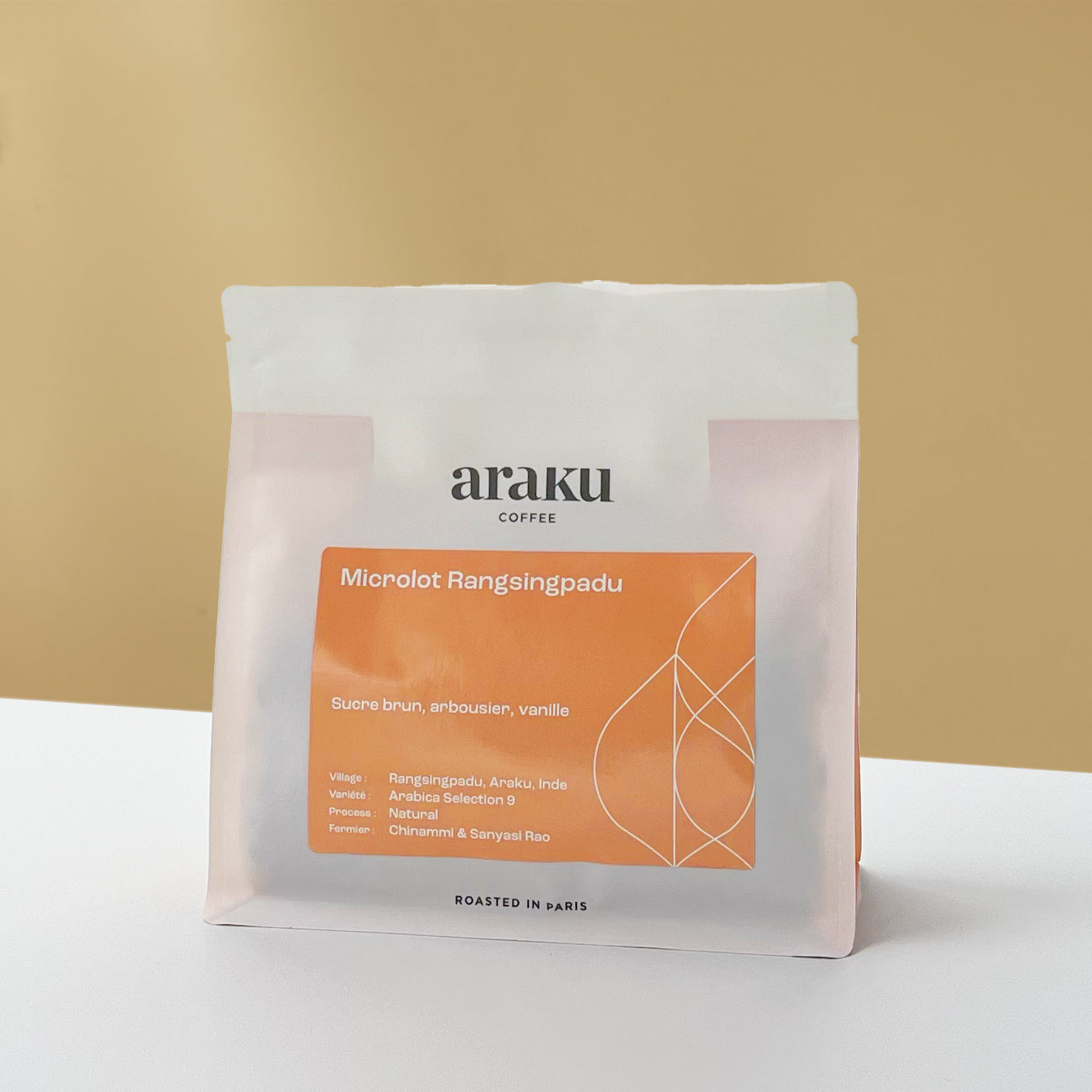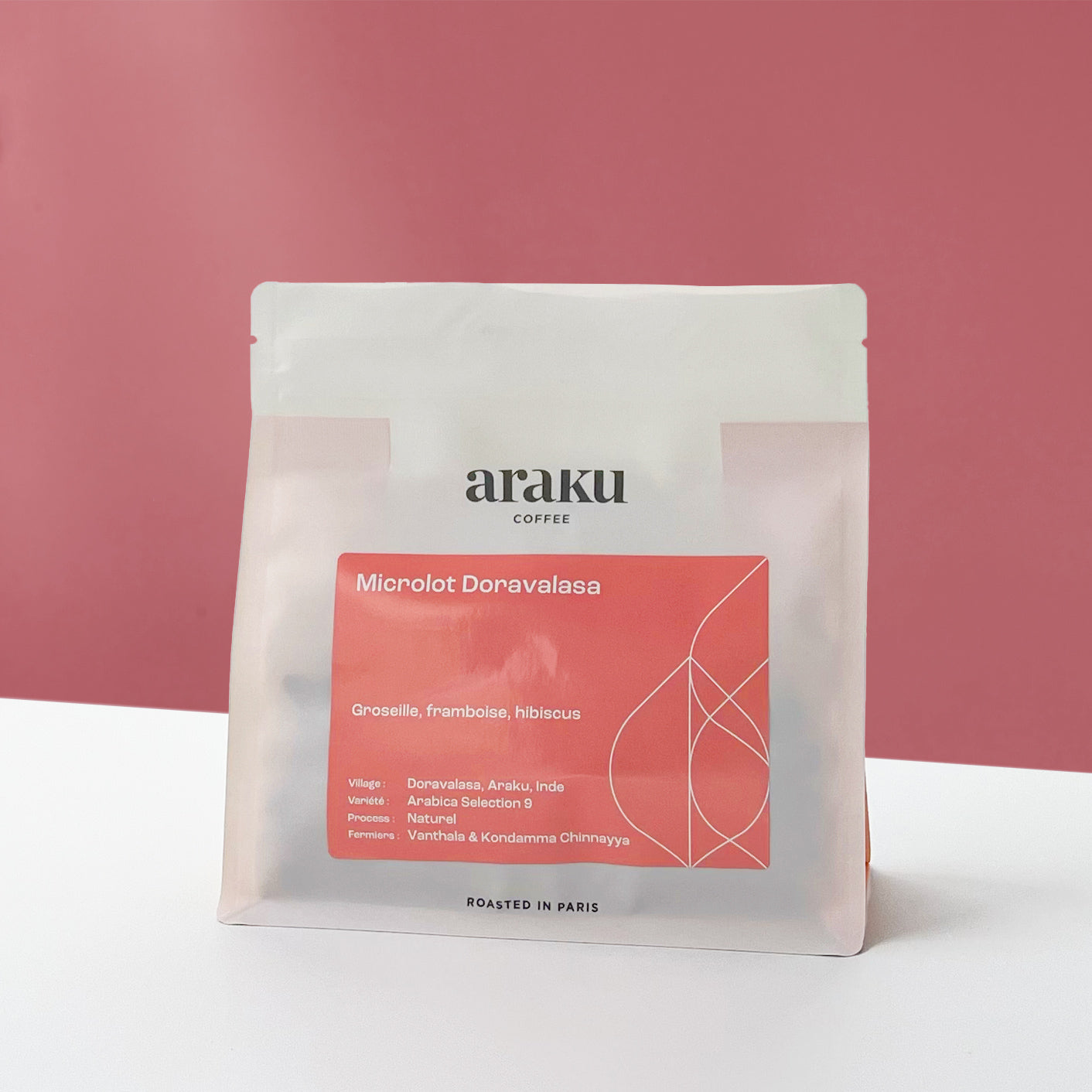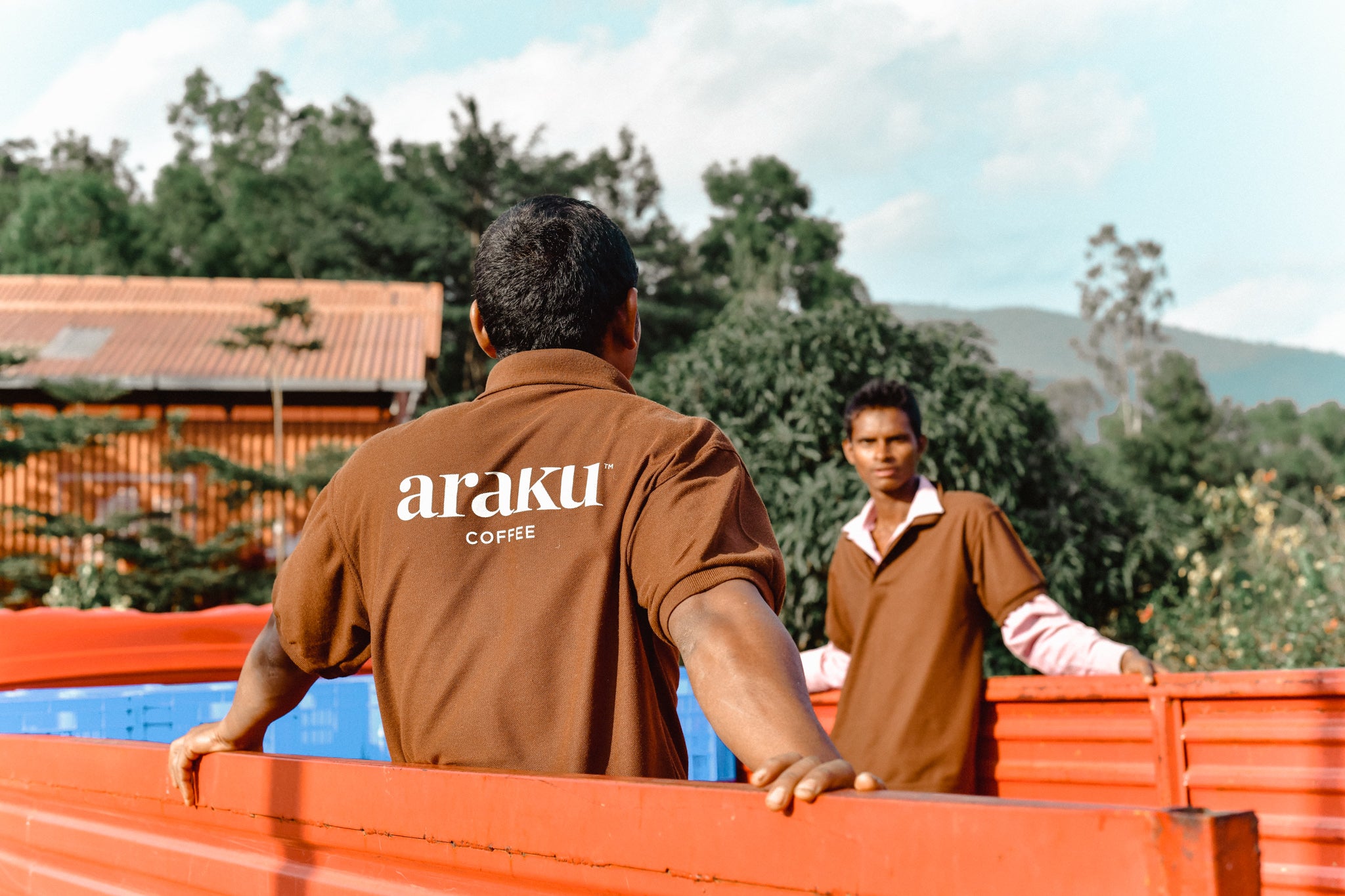The direct circuit: pillar of fair trade
In the Araku region, fair trade coffee plots belong to farmers . They are therefore both producers and owners. The Naandi foundation which operates in the valley guarantees technical assistance by providing tools and training, in exchange for quality production. Each farmer sells his organic coffee cherries to the Araku cooperative. And the Araku France structure buys its green coffee directly from the cooperative. This is the principle of the direct circuit .
Unlike the classic coffee circuit where there are many intermediaries between the farmer and the consumer, buying our organic coffee directly from the producers allows us to set prices that are not correlated to fluctuations in the coffee stock price. Result ? Our producers are better paid since the margins taken by the intermediaries are passed on to them and the consumer pays the fair price for the coffee.
Araku, campaigns for fair remuneration for organic coffee producers
So that the cultivation of organic coffee respects the logic of sustainability and the work of farmers is respected, Araku has set up a cooperative system : the Small and Tribal Farmers' Mutually Aided Cooperative Society. tribal).
This cooperative brings together all organic coffee farmers and guarantees them an economic model focused on transparency and income stability. Thus, fluctuations in the prices of organic coffee on world markets do not affect the amount of farmers' income. Ahead of the annual harvest, the cooperative board, made up of the farmers, sets the prices per kilo of coffee cherries for the duration of the harvest. Two prices are determined according to the quality of the cherries: the most expensive for baskets whose cherries are a uniform carmine red. Thus, fair trade coffee producers seek to obtain the best possible quality organic coffee beans, without having to worry about the price of their production.
Finally, they are paid on the same day of the harvest, as soon as their production arrives at the cooperative. This then ensures for them the entire process of transforming the cherries into green coffee.

